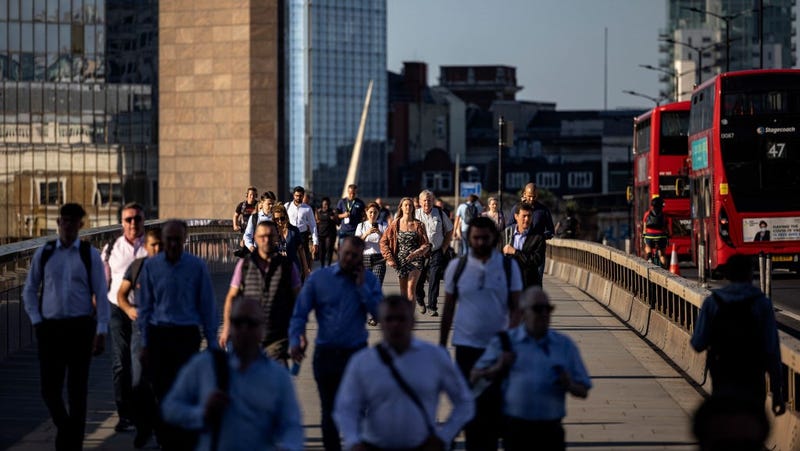
Thousands of workers in the United Kingdom will get to experience a new work schedule, as 70 companies began a four-day work week on Monday with no loss of pay in a pilot trial that will last six months.
There will be more than 3,300 workers from the companies participating in the trial, which include those in banking, construction, finance, IT, retail, tech and even a local fish and chips restaurant, among many others, according to The Guardian.
The four-day work week trial is being put together by the not-for-profit 4 Day Week Global with the think tank Autonomy, and the 4 Day Week UK Campaign, as well as researchers from Cambridge University, Oxford University and Boston College.
Workers in the trial will receive 100% of their pay for 80% of the time, as long as they are committed to keep up 100% of their productivity at work. The formula is based on the 100:80:100 model which 4 Day Week Global advocates for, according to their website.
The chief executive of 4 Day Week Global, Joe O'Connor, spoke about the difference a four-day work week could have on people's lives following the COVID-19 pandemic over the last two-plus years.
"As we emerge from the pandemic, more and more companies are recognizing that the new frontier for competition is quality of life, and that reduced-hour, output-focused working is the vehicle to give them a competitive edge," O'Connor said.
"The impact of the 'great resignation' is now proving that workers from a diverse range of industries can produce better outcomes while working shorter and smarter," O'Connor added, according to Bloomberg.
Sam Smith, co-founder of Pressure Drop Brewery in Tottenham, London gave a similar message, and told BBC how his team that produces and packages beer can remain productive in four days.
"The pandemic's made us think a great deal about work and how people organize their lives," Smith said. "We're doing this to improve the lives of our staff and be part of a progressive change in the world that will improve people's mental health and wellbeing."
"I think it's about how you use your time," Smith added. "So when I talk about being productive I don't mean being faster at the task you're doing right now, it might be making use of the natural downtimes you have to prepare better for the following day."
This is not the first four-day work week program to be tested out around the world, as The New York Times noted that similar pilots have run in Iceland, New Zealand, Scotland, and even the United States.
Iceland's four-day work week was tested between 2015 and 2019 and involved 2,500 public sector workers through two trials, making it the previous biggest trial, according to CNN.
Juliet Schor, professor of sociology at Boston College, is a lead researcher of the four-day work week trial and explained how they will look into the benefits an extra day off from work has on employees.
"We'll be analyzing how employees respond to having an extra day off, in terms of stress and burnout, job and life satisfaction, health, sleep, energy use, travel and many other aspects of life," Schor told Bloomberg.
"The four-day week is generally considered to be a triple dividend policy - helping employees, companies, and the climate. Our research efforts will be digging into all of this."


